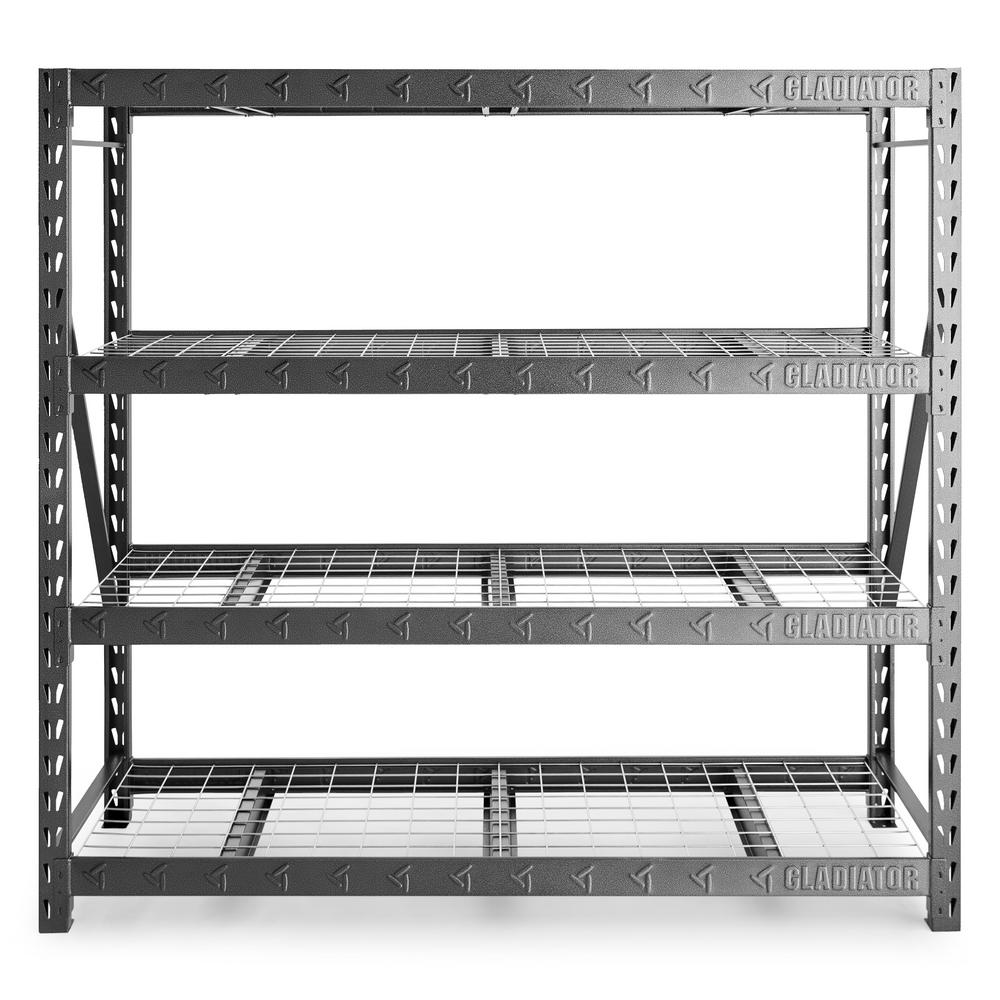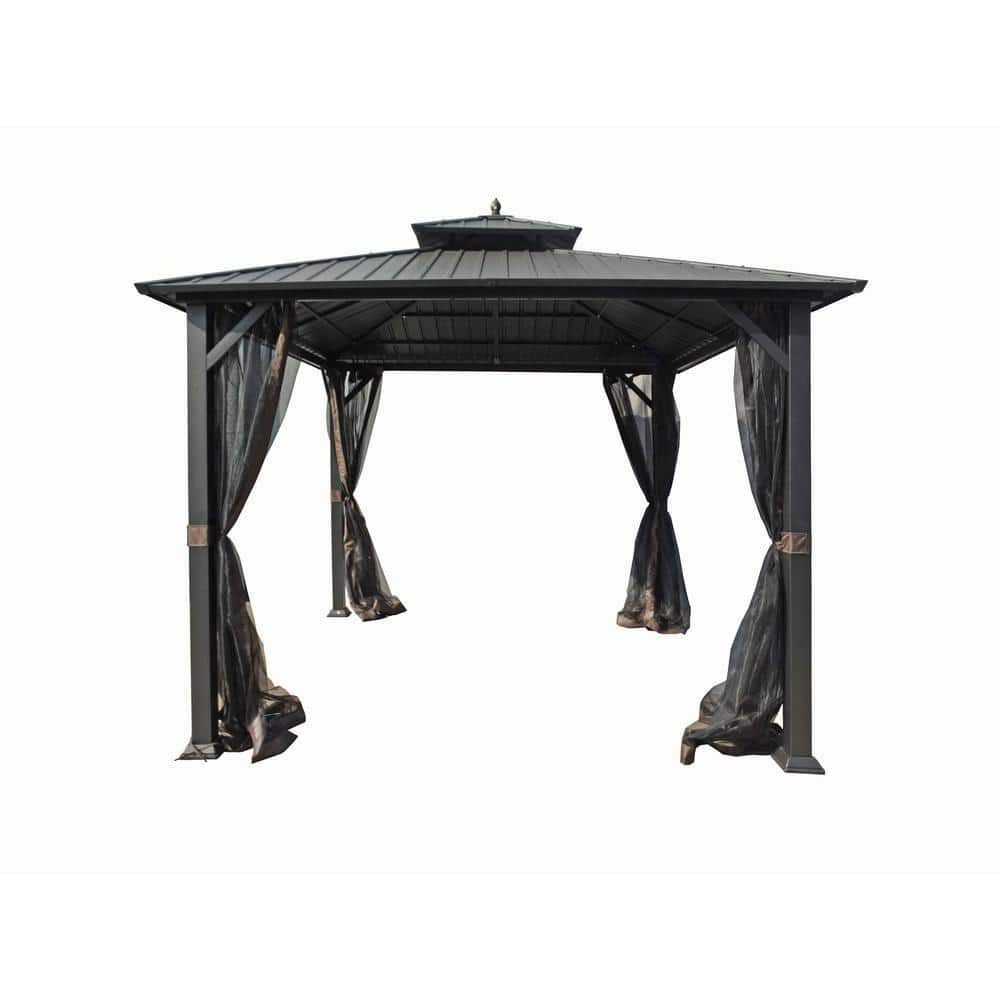Gladiator 4-Tier Welded Steel Garage Storage Shelving Unit (77 in. W x 72 in. H x 24 in. D)
4 adjustable shelves support up to 2,000 lbs. per shelf. Heavy-duty welded steel construction for durability and support. Fast and easy to assemble with no tools needed.
Store large and bulky items on the Gladiator Rack Shelving unit. This storage unit is fast and easy to assemble at home, and does not require tools. The welded steel frame features four metal shelves that can support up to 2,000 lbs. each, and the dual slot profile allows for additional supports and shelves.
- 77 in. W x 72 in. H x 24 in. D
- Holds up to 2,000 lbs. per shelf and 8,000 lbs. total
- Four shelves are adjustable when storage needs change
- Tool-free snap and lock assembly
- Heavy duty steel construction provides structural strength and exceptional support
- NSF Certified for food storage
- Lifetime limited warranty
-
Additional information
| Assembled Depth x Height x Width (in.) | 24 x 72 x 77 |
|---|---|
| Shelf Weight Capacity (lb) | 2000 |
| Manufacturer Warranty | Lifetime Limited Warranty |






by Koffee
This is my second Gladiator shelf. I bought my first from a Sear’s going out of business sale. Again, the second shelf makes me feel like I got a great deal also at any price.
by Jaxons
Best without equal. Assembles with no tools ~30 min. connected two (brilliant feature but leaves a spare piece for when you reconfigure) . Impressed me so much I bought another! High quality sturdy ease = great value
by John
Easy to put together. Sturdy. Looks great!